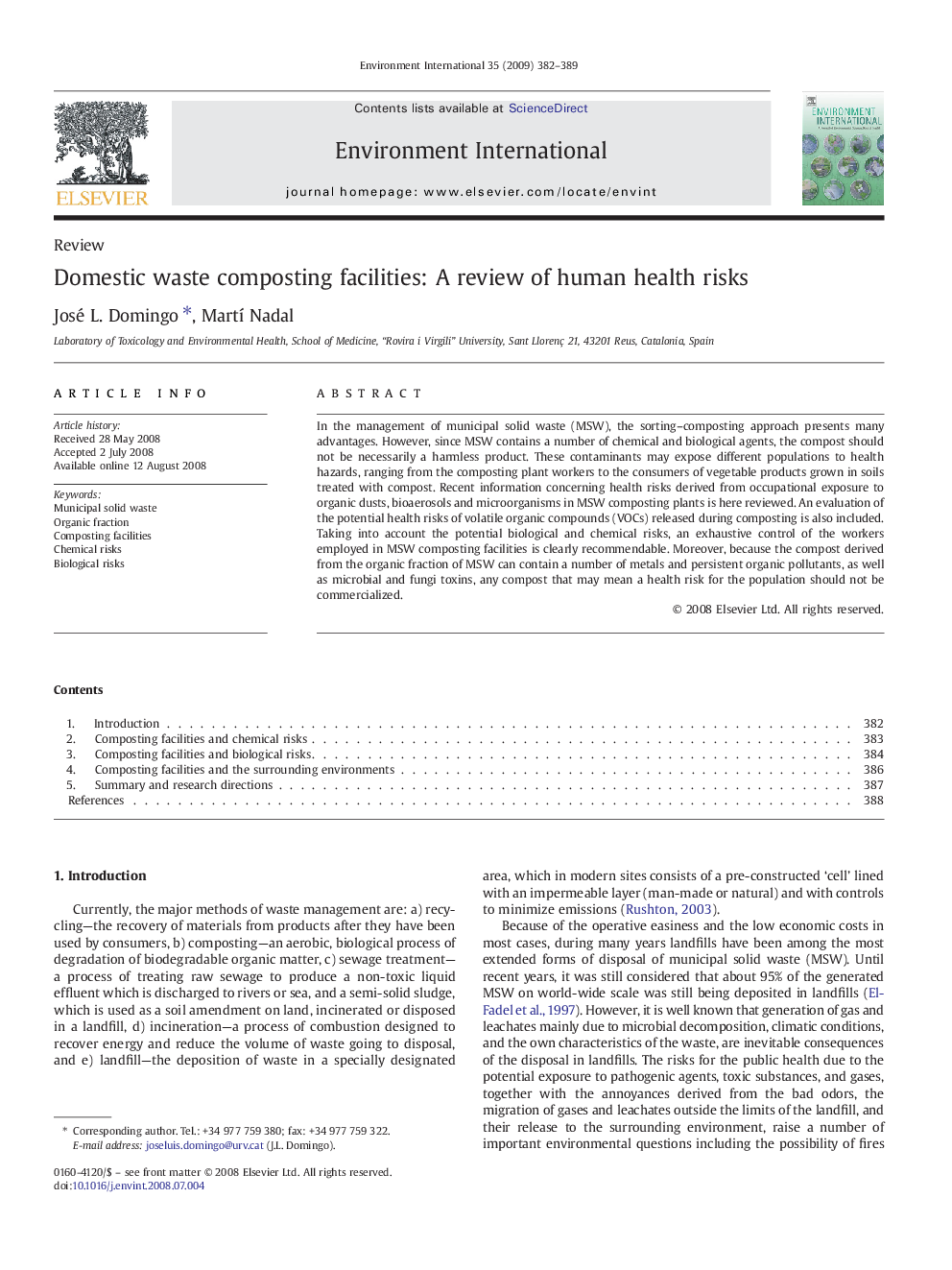| Article ID | Journal | Published Year | Pages | File Type |
|---|---|---|---|---|
| 4423670 | Environment International | 2009 | 8 Pages |
In the management of municipal solid waste (MSW), the sorting–composting approach presents many advantages. However, since MSW contains a number of chemical and biological agents, the compost should not be necessarily a harmless product. These contaminants may expose different populations to health hazards, ranging from the composting plant workers to the consumers of vegetable products grown in soils treated with compost. Recent information concerning health risks derived from occupational exposure to organic dusts, bioaerosols and microorganisms in MSW composting plants is here reviewed. An evaluation of the potential health risks of volatile organic compounds (VOCs) released during composting is also included. Taking into account the potential biological and chemical risks, an exhaustive control of the workers employed in MSW composting facilities is clearly recommendable. Moreover, because the compost derived from the organic fraction of MSW can contain a number of metals and persistent organic pollutants, as well as microbial and fungi toxins, any compost that may mean a health risk for the population should not be commercialized.
